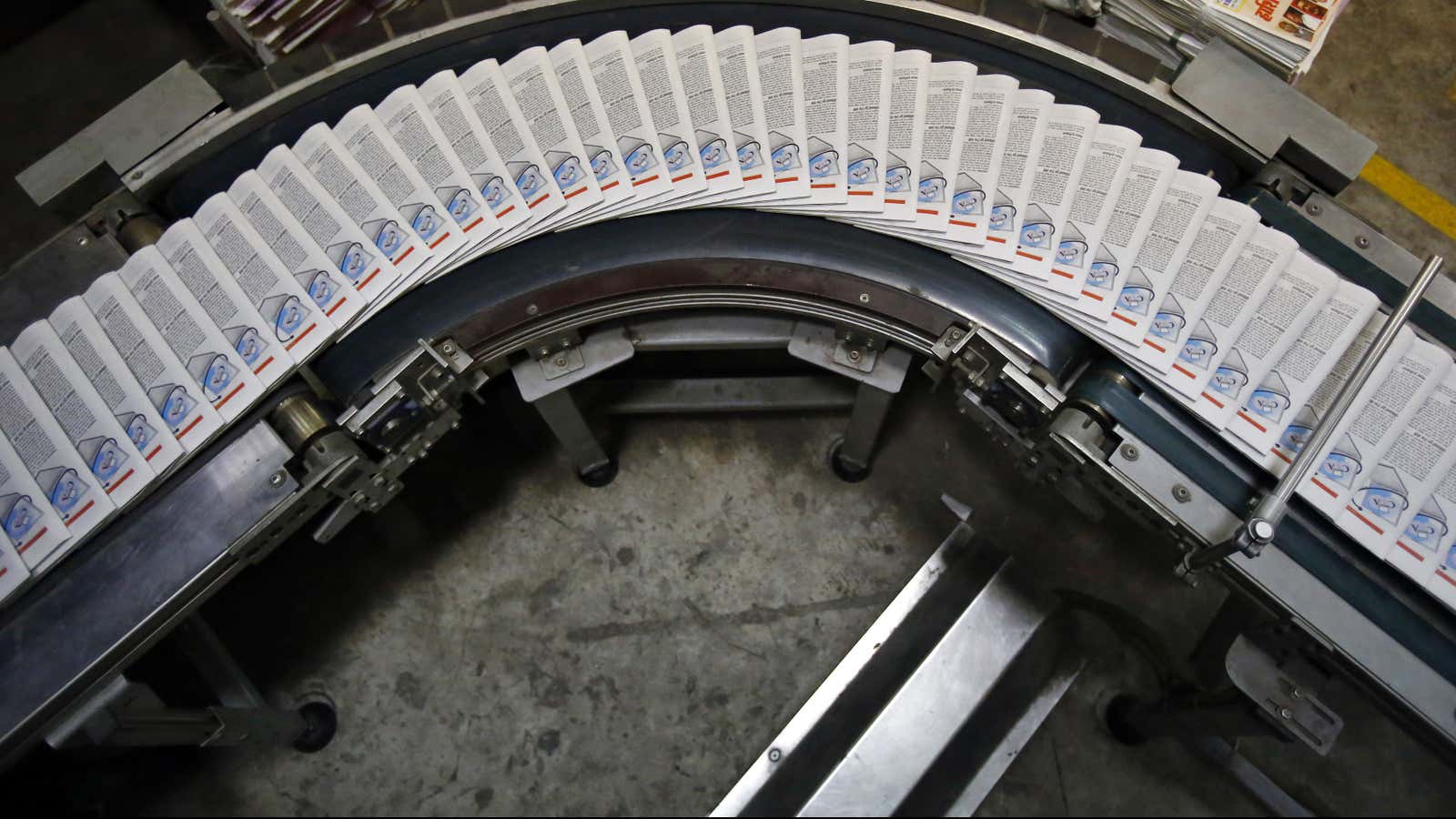At age 21, I was handed control of a million-dollar company with more than 250 employees when I was named editor-in-chief of The Daily Tar Heel, the independent student newspaper at the University of North Carolina at Chapel Hill.
The only reason I ever came to the University of North Carolina was to work for this newspaper. On my first visit to campus, I could see it was brave and compelling. It reflected every journalistic ideal I aspired to one day possess.
Being the editor-in-chief of The Daily Tar Heel this year was an incredible learning experience.
My editorial team was a powerhouse. We investigated tax fraud. We published a front-page editorial demanding change from the NCAA. We helped our community cope with the loss of the legendary basketball coach Dean Smith. And we kept up with national news outlets to cover the shooting death of three Muslim students in our tiny North Carolina town.
The sad thing is that, for many of my peers reading this article, it will probably be the first time they learn about some of our progress this year.
In some ways, it’s humbling to realize that the newspaper I spend so many hours working on isn’t really beloved by my peers in the same way.
That’s because we don’t read news the way our parents did. We never will.
This year didn’t teach me that. Professors have been squawking that at me for many years now.
I’ve long been told that print is an expensive product to love. Publishers and editors must figure out a profitable way to get their news into readers’ heads.
What this year taught me is the intricacies of this problem.
My peers are interested in reading news, but they have no loyalties whatsoever about where it comes from. You can be the greatest columnist in the world, but it will be tough to garner a strong following from millennials.
Even some of my closest friends refused to pick up the newspaper I spent dozens of hours on each week. They’d rather get the day’s news from many different sources by scrolling through their Twitter feed.
Second, millennials want reporters to clearly state why a story matters to them. This is the selfish side of millennials we hear so much about. But it’s a good idea for reporters to understand to keep readers engaged longer.
Local news is not dead. Rather, there’s a demand for hyper local news in real time, which is why Facebook pages like Overheard at UNC are incredibly popular. They’re a home for citizen journalists to curate and present content.
Finally, there is not a strong appreciation for opinion writing. My peers would rather be given the information and formulate an opinion on their own. They turn to their peers for help, not the local opinion editor.
As a caveat to that, the news industry’s efforts to keep opinion separate in the newsroom and in print is completely lost on readers close to my age. They don’t care if you have a special font that you only use for editorials. They can’t tell the difference. They don’t care if opinion is on the front page. That’s not how they organize the news in their mind.
But there are many questions we still don’t have answers to.
In my time at UNC, my classmates and I didn’t come to a conclusion on the importance of accuracy. In our class discussions, people said they value it but then they also seemed to prioritize speed of delivery over everything else. And those two values aren’t always in sync.
It’s when journalists are tripping over each other to get a story out that everyone makes mistakes. And I’m not sure we fully unpacked that.
I never did learn what triggers an international news cycle.
The tragedy of the Chapel Hill shooting was complex. But I don’t know if the overwhelming response to it came from the fact that three Muslim students in Chapel Hill were killed or from the fact that local media weren’t calling the killings a hate crime.
That distinction matters.
I still don’t know where this country will go with privacy. We put so much of ourselves out there on social media and I do worry that my peers don’t guard their personal details carefully enough.
And the big one. After many classes with some of the journalism school’s best minds, my classmates and I still couldn’t figure out a definitive way to make news profitable.
But the journalism school sure did send me away with a lot of ideas for how to get there.
We unpacked so much and we were given the tools and the knowledge to tackle many other issues facing the journalism industry.
It was really a privilege to get to speak with some of the brightest minds from our field for a few hours each week.
Going forward, I know I’ll never have a job quite like this one. What makes college newspapers great is the fact that they aren’t run by journalists. They are run by students who love journalism.
Instead, I will work in a place that has all the snarkiness and wit of a great newsroom that is struggling to understand how to turn a profit in a world where everyone believes information should be free.
It’s kind of scary to think that I’ve spent the last year training for a job I’ll never have. But this is the first time I haven’t felt terrified about that.
I feel empowered.
